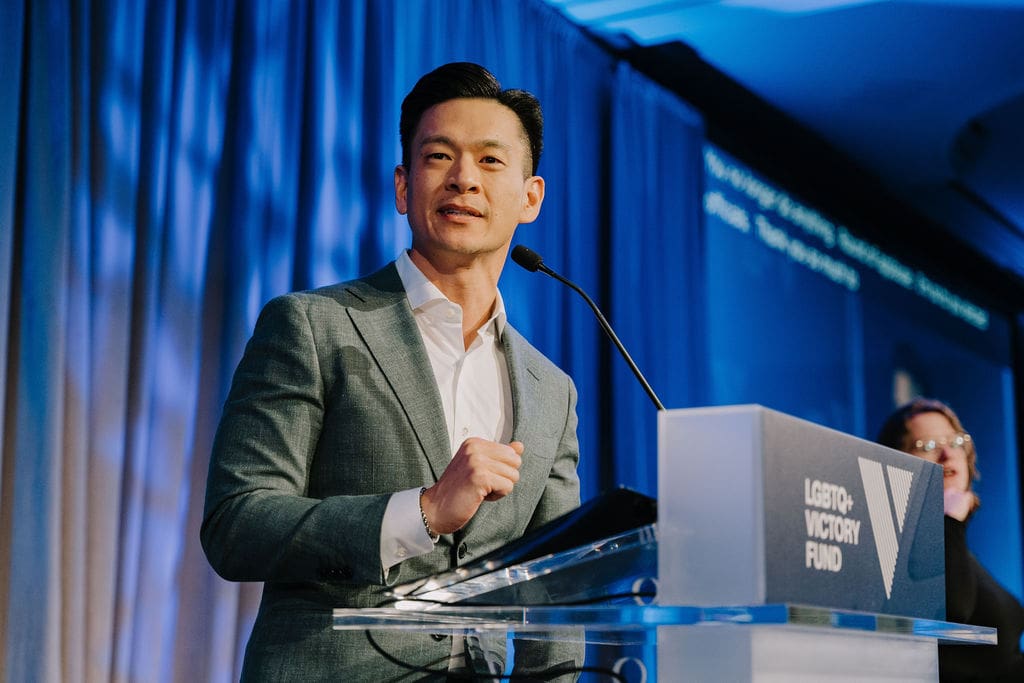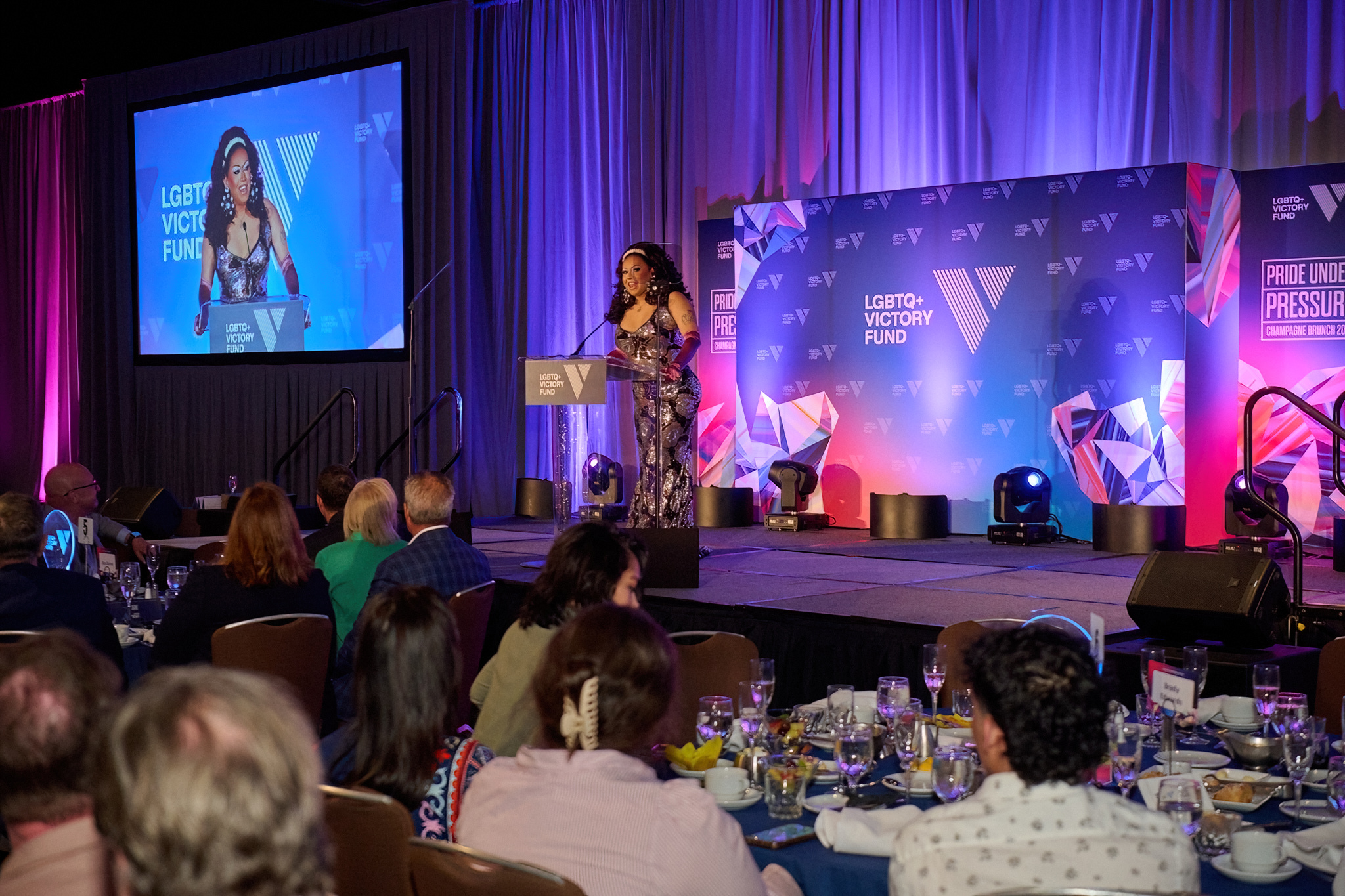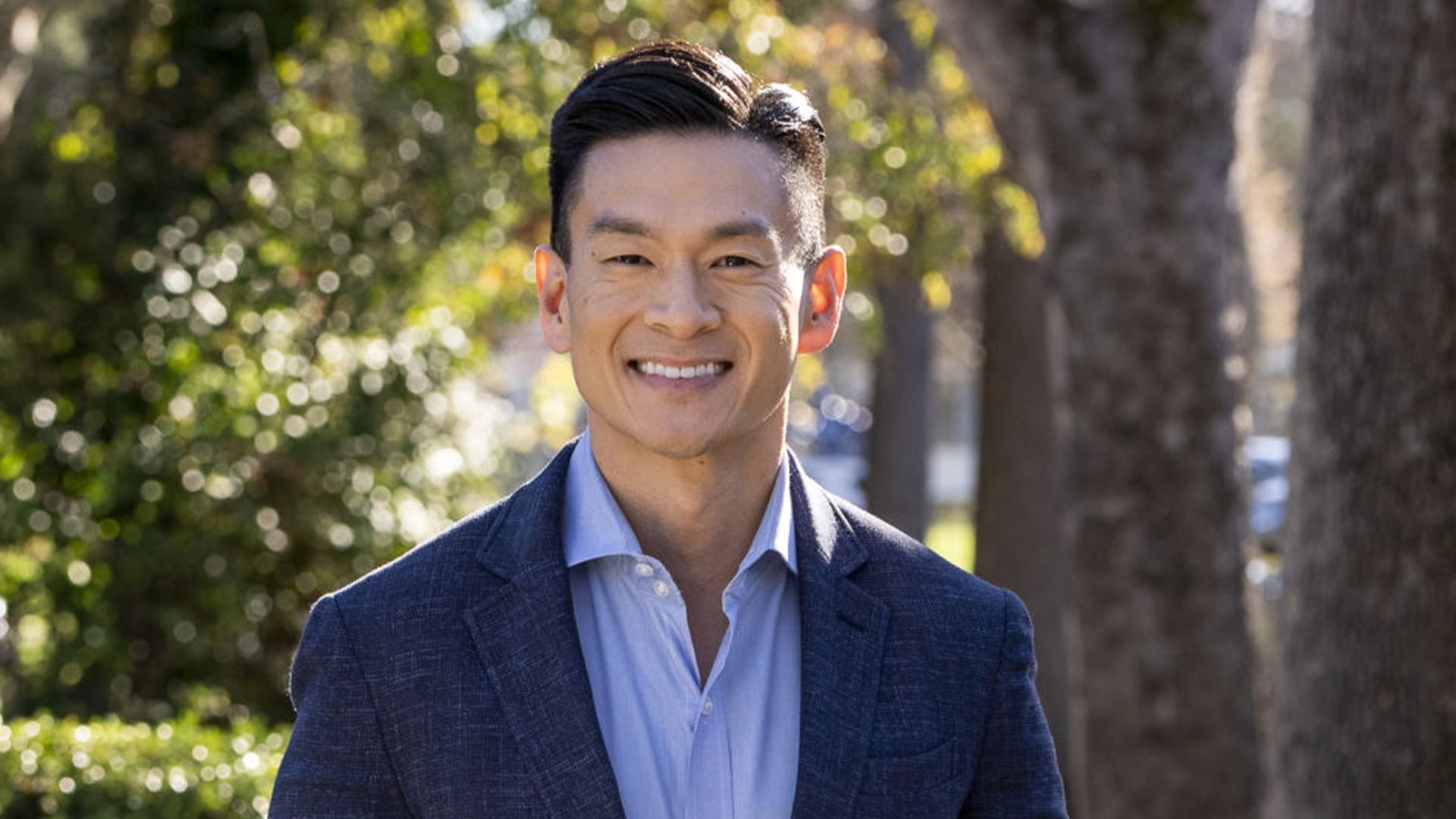Becoming the target of an anti-gay attack was one of the best things to happen to Joel Burns’ candidacy for Fort Worth City Council.
When Burns began the race to replace Wendy Davis on the city council, his sexuality was no secret — he had been with his partner J.D. for 15 years. So when a city councilman got up at a fundraiser and brought it to everyone’s attention, the smear was a curious mix of hateful and unnecessary.
At an event for Chris Turner, councilman Chuck Silcox joined the candidate on stage and said the following: “We have two people of opposite partisan politics, opposite philosophical persuasions and opposite sexual orientations. I didn’t tell you which one was homosexual.”
The crowd laughed.
Gesturing toward Turner, Silcox said “He’s married to a female, and the other’s married to a male. You make your own mind up.”
The next morning, the story was in the Fort Worth Star-Telegram and the tone of the entire campaign shifted.
“That morning was an awful, terrible, not good morning,” Burns said. “I thought of my mother and father, the little rural town that they live in, and waking up and reading the Fort Worth Star-Telegram and seeing my name on the front page. No parent ever wants to see their child attacked, even if they’re an adult.”
However, over the course of the day, things changed. The unseemly attack backfired and united Joel’s campaign.
“By the end of that day it was an amazing, wonderful just so reinvigorating and reassuring. I had people I had never met in my life before walk through my campaign headquarters and say ‘how can I help?’ or say ‘here’s a check for a hundred dollars.'”
In fact, while walking door to door, Burns encountered a man who claimed to have planned on voting for Turner until he read the article. The self-avowed primary-voting Republican told Burns to wait on his doorstep and later emerged with a campaign contribution.
Read GayPolitics.com’s interview with Burns below.
GayPolitics.com: You’re less than a month into your term – how is it going? How has your life changed?
JB: It is an amazing inundation. It’s wonderful and overwhelming and exciting – all of those things at the same time. It’s a great experience, I’m busier than I’ve ever been in my life.
GP: Previously, you served in appointed positions on zoning and landmark commissions. What made you want to run for city council?
JB: That was largely it. I have a history of public service. There were those experiences, serving as the chairman of the Historic and Cultural Landmark Commission and serving on the Zoning Commission. I enjoyed my time giving back to my city and that was part of what helped me want to run. Part of it was also giving back to a community that I’ve received a lot from. I’ve benefited from my life in Fort Worth – it’s a wonderful city that I felt compelled to give back to.
GP: Since your old positions were appointed, did you have any hesitation toward launching a political campaign?
JB: Obviously, it’s a huge undertaking and something that I’d been thinking about for a while. I had people approach me about running a couple of years ago and at the time it wasn’t something I felt like I could take on. It turned out there wasn’t an opening for me to run for a seat anyways, so the planning worked out well in that regard.
I had a few early conversations, they were very flattering, but it got me thinking about the possibility of being an elected official – which was something I hadn’t written into my story. It was something that I had scripted ever before. In fact, my partner J.D. and I had a conversation to the effect of that it wasn’t something we wanted either one of us to do. But it got me to kind of reframe that possibility.
One of the absolute best things that I did was doing the [Gay & Lesbian Leadership Institute] training down in Houston in 2006. I did it as a very preliminary thing to explore whether or not this was something I wanted to take on. To make sure I had a pretty good understanding. I have quite a bit of history in campaigns, having worked for the Democratic Party, having a husband who works in the industry. I wanted it to try it on in a personal way, as a candidate. Going to the training was so amazingly invaluable because I went to the training in 2006, thinking that I was preparing for a possible 2009 city council race. It was very, very early. But I’m so glad that I did because a few months after I attended the training, the city councilwoman that I served on the zoning commission with resigned her seat after just having been re-elected, to run for state senate. And it created an opening that I was prepared to step into and to take advantage of. It turned out to be an incredibly invaluable, fortuitous thing for me to have gone through the training just on the possibility that I might run in the future, because the opportunity presented itself far earlier than I thought was going to happen.
GP: You said that you had never planned on running for office before. How did you make the decision to actually do it?
JB: It’s one of those things that, in spite of our discussion that that’s not something we would ever do, when faced with actual opportunities, it just made sense. He was incredibly supportive and he said ‘Is this really something you want to do? You need to decide if you really want to do it.’ Part of that was going to the GLLI training and doing some critical thinking about our lives and where we were at. He said that he would support me.
I couldn’t have won this race without having an incredibly supportive spouse. I think with most candidates, that is a crucial ingredient in a successful campaign — having a spouse that supports the effort wholeheartedly. And getting up at seven a.m. on Saturday morning to get ready to walk blocks. I was doubly fortunate in that I married someone who works in politics so he basically took this on 24-7. He forewent other more lucrative clients and working on those campaigns a spent a whole lot of time in the thick of things in my city council race.
GP: Your sexuality never really dominated the race for the most part. How big of a factor was it?
JB: It was a small factor. It certainly had its role in my race and it’s not something that you can assume, if you’re gay or lesbian, will have no impact whatsoever. Fort Worth is very much a western city and there’s a live-and-let-live mentality. Most voters were really thinking about the issues.
One of the things, if you want to call it the attack or the comments that were made in the Fort Worth Star Telegram by City Councilmember Chuck Silcox about me being gay – was it gave me the opportunity to do is re-focus on the issues. I was presented a choice – could I make my candidacy about being the gay candidate or could I double back on the issues that I was talking about which were free transportation, quality economic development and safe neighborhoods. I was able to make the contrast between the other candidate and me.
You really do have to think about the voters. It can’t be just about the candidates. If I were just thinking about me I would be playing into the exact same thing my opponent was trying to do and make it about personalities and personal lives. I made it about what my voters wanted to talk about. I think that’s part of the reason the guy who was supposed to come in second ended up coming in third. I think it really backfired. I know it was a strategy of his to do this kind of public outing of me – even though everyone in Fort Worth already knew that I was gay. His intention ultimately backfired.
GP: Did Silcox’s comments re-invigorate you or was it psychological stumbling block during your campaign?
JB: The morning the article came out in the newspaper – that morning was an awful, terrible, not good morning. I thought of my mother and father, the little rural town that they live in and waking up and reading the FWST and seeing my name on the front page.
No parent ever wants to see their child attacked, even if they’re an adult. By the end of that day it was an amazing, wonderful just so reinvigorating and reassuring. I had people I had never met in my life before walk through my campaign headquarters and say “How can I help?” or say “Here’s a check for a hundred dollars.”
The Star-Telegram had a comments form on their article and at some point they had to take it down because there had been a lot of back and forth. Ninety percent of the people were incredibly supportive.
It was a galvanizing moment in the campaign and one that ultimately worked to my advantage, because it brought the attention of people who hadn’t previously been paying attention on to me and it worked to my benefit.


